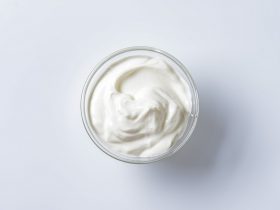We know for a fact that nutrition has a great influence on birth outcomes. Various medical and scientific organizations have emphasized the value of pregnant and lactating women achieving adequate nutrients through an optimum diet. But when diet is not enough, nutritional supplements can help.
There is no huge difference between prenatal and postnatal vitamin supplements. A woman who took prenatal vitamins to support her nutritional needs during pregnancy can continue taking the same vitamins after birth for the same purpose of supporting her needs as a new mother. Being dietary supplements, both prenatal and postnatal vitamins should not be regarded as complete sources of needed nutrients, but rather only as a boost for when diet may be insufficient.
This article will discuss the importance of prenatal nutrition and give examples of research done about the effects of supplementation with specific key nutrients during pregnancy. Postnatal nutrition will also be explained and differentiated as to the specific needs during this time.
Prenatal Nutrition
Nutritional requirements increase during pregnancy, as reflected in higher Recommended Dietary Allowances (RDAs) for pregnant women compared to nonpregnant women (National Research Council, 1989). A balanced diet is the proper source of nutrition during pregnancy. However, pregnant women are at risk for multiple deficiencies because of higher demands for the developing fetus, and the growing maternal tissues and placenta (Haider & Bhutta, 2017).
Nutrient deficiencies during pregnancy influence fetal growth and development while in utero. They can also affect subsequent growth and cognitive development later during childhood, as well as the overall health status even in adulthood (Christian & Stewart, 2010).
Nutritional status in fetal life can alter metabolism, vasculature, and organ growth and function. These may result to increased risk of cardiometabolic disorders, adiposity, altered kidney function, thereby leading to development of diabetes and cardiovascular diseases (Christian & Stewart, 2010).
Assessment of dietary practices is, therefore, recommended for all pregnant women in the United States to be able to determine their need for dietary counseling, vitamin or mineral supplementation, or both. Routine supplementation may not be necessary for all, but pregnant women who are at risk for nutritional deficits should be identified (Brown & Wright, 2020).
According to the American College of Obstetricians and Gynecologists (ACOG), during pregnancy, all women need to have an adequate intake of folic acid, iron, calcium, vitamin D, choline, omega-3 fatty acids, B vitamins, and vitamin C. The importance of, as well as the daily recommended amounts for, each key vitamins and minerals are as follows (ACOG, 2021):
| Nutrient | Purpose | Daily Recommended Amount |
|---|---|---|
| Calcium | Strong bones and teeth | 1.3 grams for ages 14 to 18 years; 1 gram for ages 19 to 50 years |
| Iron | Helps red blood cells deliver oxygen to the fetus | 27 milligrams |
| Iodine | Proper fetal brain development | 220 micrograms |
| Choline | Proper development of fetal brain and spinal cord | 450 milligrams |
| Vitamin A | For healthy skin and good eye sight Also helps with bone growth | 750 micrograms for ages 14 to 18 years; 770 micrograms for ages 19 to 50 years |
| Vitamin C | Promotes healthy formation of gums, teeth and bones | 80 milligrams for ages 14 to 18 years; 85 milligrams for ages 19 to 50 years |
| Vitamin D | Proper development of fetal bone and teeth Also promotes healthy skin and good eyesight | 600 IU |
| Vitamin B6 | Helps in formation of red blood cells Also helps the body use protein, fat and carbohydrates | 1.9 milligrams |
| Vitamin B12 | Maintenance of nervous system Also helps in formation of red blood cells | 2.6 micrograms |
| Folic acid | Prevention of birth defects of the brain and spinal cord (neural tube defects) Also supports general placental and fetal growth and development | 600 micrograms |
It is important for pregnant women to take only one serving of prenatal supplement each day. Taking more than the recommended amount can lead to harm as some vitamins, like vitamin A, can cause birth defects at higher doses (ACOG, 2021).
In 2017, Haider & Bhutta reported that pregnant women who received multivitamin supplements had overall fewer incidence of delivering low birth weight and small for gestational age babies. However, the intake of nutritional supplements cannot be considered an acceptable substitute for a well-balanced diet throughout pregnancy.
In 2016, Bell & Aujla revealed that none of the top 25 prenatal multivitamins contained the recommended amount for choline intake of 450 milligrams per day. Only two products were found to contain merely 50 and 55 milligrams of choline, while six of the products contain as little as below 30 milligrams of choline.
Iron
Iron is the only mineral for which requirements may not be met through diet alone. The demand for iron for the whole duration of pregnancy is almost 1 gram. Therefore, the requirement for iron intake is at least 27 milligrams for pregnant women, compared to only 1 to 8 milligrams for the non-pregnant population (Friedrisch & Friedrisch, 2017).
Pregnant women are at a particularly high risk for iron deficiency anemia (IDA) (Müngen, 2003), which may lead to development of the following adverse maternal and fetal outcomes (Friedrisch & Friedrisch, 2017):
- Preeclampsia
- Low birth weight
- Prematurity
- Fetal death
- Delayed fetal maturation
- Irreversible compromise to infant neurocognitive development and motor ability
At present, we now have enough evidence that supports iron supplementation during pregnancy because it increases hemoglobin and serum ferritin levels, thereby improving maternal iron status, even among women with adequate iron stores pre-pregnancy. However, routine iron supplementation during pregnancy is not universally practiced in all countries (Müngen, 2003).
The Centers for Disease Control and Prevention (CDC) recommends that pregnant women start iron supplementation during the first prenatal visit at 30 milligrams per day. Meanwhile, the World Health Organization (WHO) advises 60 milligrams per day of iron supplements for pregnant women (Friedrisch & Friedrisch, 2017). In the United States and France, pregnant women are automatically advised to take iron supplements anywhere from 30 up to 60 milligrams per day.
Still, guidelines in Britain do not recommend routine iron supplementation in normal pregnancies (Friedrisch & Friedrisch, 2017). Similarly, in Australia and the United Kingdom, pregnant women are screened and those found to have IDA are the only ones initiated on iron supplementation therapy (Siu & U.S. Preventive Services Task Force, 2015).
A risk of routine iron supplementation in all pregnant women is the development of iron overload, especially in patients with sufficient iron stores and those with hemoglobinopathies and hereditary hemochromatosis (Rawal et al., 2017).
Folic Acid
Current guidelines recommend pregnant women to consume a minimum of 600 micrograms of folic acid per day. This is hard to achieve from diet alone. Therefore, a prenatal vitamin with at least 400 micrograms of folic acid every day can be taken together with foods rich in this vitamin to help reach the 600-microgram goal.
Daily intake of an iron plus folic acid supplement is recommended by the WHO for all pregnant women to prevent the development of maternal anemia, puerperal sepsis, low birth weight, and preterm birth (Cheng et al., 2019). Studies have shown that daily use of an iron-folic acid (IFA) supplementation significantly decreases the prevalence of maternal anemia and risk of low birth weight (Nisar & Dibley, 2014).
In 2014, Nisar & Dibley documented that intake of IFA supplements significantly reduced the risk of early neonatal deaths, especially if supplementation began before the 5th month age of gestation, compared to no IFA intake. Likewise, in 2018, Freedman et al. reported that maternal supplementation with folic acid and phosphatidylcholine during pregnancy has been shown to improve childhood emotional development associated with later mental illnesses.
However, in 2019, Cheng et al. found that children of women who took a multivitamin supplement during pregnancy had significantly higher development scores by the age of 3 years, compared with those whose mothers had IFA supplementation alone. Improvement in development scores were seen for communication, gross motor, fine motor, problem solving, and personal-social skills.
Iodine
Both the WHO and the United Nations Children’s Fund (UNICEF) recommend a daily iodine supplement of 250 micrograms for all pregnant women (Cheng et al., 2019). Iodine is an essential component of the hormones produced by the thyroid gland. When there is a deficiency in iodine, synthesis of the thyroid hormones can become impaired. This results in hypothyroidism, which during pregnancy, can impact on infant growth and development (Farebrother et al., 2015).
Iodine fortification in salt has been undertaken as a safe and cost-effective strategy to ensure adequate iodine intake by all individuals, including pregnant women. In situations where iodized salt is insufficient, daily iodine supplementation for pregnant women is recommended (Farebrother et al., 2015).
Vitamins A and D
In 2015, Palmer et al. reported that maternal supplementation with vitamin A during pregnancy increased the natural antibody concentrations of their preadolescent children. Meanwhile, De-Regil et al. in 2012 found that pregnant women who received vitamin D supplements had lower risk of delivering a baby with a birth weight of less than 2500 grams, compared to those who received no treatment. Likewise, Freedman et al. in 2018 concluded that maternal supplementation with both vitamins A and D reduced the risk of their offspring for development of schizophrenia and autism later in life.
Postnatal Nutrition
The primary focus during the postnatal period is to replenish and achieve sufficient nutrient reserves needed for the next challenge ahead. A new mother’s body spent almost 10 months using up its vitamin and mineral stores for her growing baby. Women need a balanced supply of nutrients to replace worn-out tissues and provide energy that they need after delivery.
Stores of some nutrients, including calcium, vitamin B6 and folate, may need to be replenished postnatally. Women who do not have adequate dietary intakes, or those who are at high risk of nutritional deficiencies, may benefit from continuing multivitamins and mineral supplementation during the postpartum period.
Although the best nutrient sources are consumed from food, there is a great chance that a new mother will be putting her baby’s dietary needs before her own. Therefore, after giving birth, it is worthwhile to continue taking in some supplements as there will be new demands fueled by breastfeeding.
Taking the same vitamin supplements that were prescribed during pregnancy may be of benefit to the new mother. The ACOG states that doctors may advise women to continue taking their prenatal multivitamins while they are breastfeeding. Similarly, according to the CDC, mothers can benefit from taking multivitamins while breastfeeding – looking into something like cellular nutrition could be beneficial in getting exactly what you need.
While taking supplements is not a requirement for every woman, some may not get enough nutrients through their diet alone and may be at risk for nutritional deficiencies. In addition, the recommended amounts for some nutrients increase while breastfeeding. Hence, diet alone may not be sufficient to provide an optimal level of nutrition.
Unfortunately, there is very little research done with postnatal women and the specific vitamin supplements that they need, especially when they are not breastfeeding. However, pregnancy and giving birth to a baby place enormous nutritional demands on a woman’s body, and deficiencies can impact her health, the health of her baby, and also subsequent pregnancies. Therefore, continuing a nutritional supplement postnatally can be beneficial.
It is perfectly fine for women in their postpartum period to continue taking the same supplements they took during pregnancy. Otherwise, they can also opt to switch to a postnatal supplement. There is no sufficient data that will say that one is more beneficial than the other. Either way, they need to check the label for presence and amount of calcium, vitamin D, iron, B vitamins and DHA.
While there are lots of different products available marketed as postnatal vitamins, there really is not much difference compared to their prenatal counterparts. What’s more, these vitamins may still be lacking in nutrients that a mother actually needs during the postpartum period.
After analyzing more than 250 multivitamin products that are available, DeSalvo et al. (2018) found that not all of them are able to provide adequate amounts according to recommendations. Most of them do, but this would depend on the specific vitamin or mineral as there is notable variation between product contents.
Some would be able to correct vitamin A and zinc deficits, while others can only correct calcium or vitamin D deficit. Very few of the products analyzed can correct deficits for magnesium and choline (DeSalvo et al., 2018).
Final Thoughts
Prenatal vitamin supplements are more frequently used and have been more extensively researched compared to their postnatal counterparts. Prenatal multivitamins and iron-folic acid supplements have been used either routinely or for those at risk for deficiencies, and have shown significant maternal and fetal benefits.
On the other hand, postnatal vitamins are frequently recommended for breastfeeding mothers. However, there is not much data with how much vitamins and minerals are actually needed in the postpartum period for mothers who are not breastfeeding.
Even so, taking in some form of dietary supplement may benefit the mother postnatally. As there is no known significant difference between postnatal and prenatal vitamins in terms of their nutrient composition, a mother can opt for either.
There is, however, a notable variation between different brands so labels must be checked for the specific nutrient that you need the most. Talk to a health care provider to help you decide what is the best type of vitamin supplement that is best for you and your baby.
References
- https://www.healthline.com/
- https://www.acog.org/
- https://www.mother.ly/
- https://www.acog.org/
- https://thisisneeded.com/
- https://www.cdc.gov/
- Bell, C., & Aujla, J. (2016). Prenatal vitamins deficient in recommended choline intake for pregnant women. Journal of Family Medicine and Disease Prevention 2, 48. DOI: 10.23937/2469-5793/1510048
- Brown, B., & Wright, C. (2020). Safety and efficacy of supplements in pregnancy. Nutrition Reviews 78(10), 813-826. doi: 10.1093/nutrit/nuz101
- Cheng, G., Sha, T., Gao, X., Wu, X., Tian, Q., Yang, F., & Yan, Y. (2019). Effects of maternal prenatal multi-micronutrient supplementation on growth and development until 3 years of age. International Journal of Environmental Research and Public Health 16(15), 2744. doi: 10.3390/ijerph16152744
- Christian, P., & Stewart, C. (2010). Maternal micronutrient deficiency, fetal development, and the risk of chronic disease. The Journal of Nutrition 140(3), 437-445. doi: 10.3945/jn.109.116327
- De-Regil, L. M., Palacios, C., Ansary, A., Kulier, R., & Peña-Rosas, J. P. (2012). Vitamin D supplementation for women during pregnancy. Cochrane Database of Systematic Reviews 2, CD008873. doi: 10.1002/14651858.CD008873.pub2
- DeSalvo, K., Stamm, C., & Borgelt, L. (2018). Evaluation of reported contents in prescription and over-the-counter prenatal multivitamins. Journal of the American Pharmacists Association 58(3), 258-267. doi: 10.1016/j.japh.2018.02.006
- Farebrother, J., Naude, C., Nicol, L., Sang, Z., Yang, Z., Andersson, M., …, & Zimmermann, M. (2015). Systematic review of the effects of iodised salt and iodine supplements on prenatal and postnatal growth: Study protocol. BMJ Open 5(4), e007238. doi: 10.1136/bmjopen-2014-007238
- Freedman, R., Hunter, S., & Hoffman, M. C. (2018). Prenatal primary prevention of mental illness by micronutrient supplements in pregnancy. American Journal of Psychiatry 175(7), 607-619. doi: 10.1176/appi.ajp.2018.17070836
- Friedrisch, J. R., & Friedrisch, B. K. (2017). Prophylactic iron supplementation in pregnancy: A controversial issue. Biochemistry insights 10. doi: 10.1177/1178626417737738
- Haider, B., & Bhutta, B. (2017). Multiple-micronutrient supplementation for women during pregnancy. The Cochrane Database of Systematic Reviews 4(4), CD004905. doi: 10.1002/14651858.CD004905
- Mungen, E. (2003). Iron supplementation in pregnancy. Journal of Perinatal Medicine 31(5), 420-426. doi: 10.1515/JPM.2003.065
- National Research Council. 1989. Recommended dietary allowances (10th ed.). National Academy Press.
- Nisar, Y. B., & Dibley, M. (2014). Earlier initiation and use of a greater number of iron-folic acid supplements during pregnancy prevents early neonatal deaths in Nepal and Pakistan. PLOS ONE 9(11), e112446. doi: 10.1371/journal.pone.0112446
- Palmer, A., Schulze, K., Khatry, S., De Luca, L., & West, K. Jr. (2015). Maternal vitamin A supplementation increases natural antibody concentrations of preadolescent offspring in rural Nepal. Nutrition 31(6), 813-819. doi: 10.1016/j.nut.2014.11.016
- Rawal, S., Hinkle, S., Bao, W., Zhu, Y., Grewal, J., Albert, P., …, & Zhang, C. (2017). A longitudinal study of iron status during pregnancy and the risk of gestational diabetes: Findings from a prospective, multiracial cohort. Diabetologia 60(2), 249-257. doi: 10.1007/s00125-016-4149-3
- Siu, A., & U.S. Preventive Services Task Force. (2015). Screening for iron deficiency anemia and iron supplementation in pregnant women to improve maternal health and birth outcomes: U.S. Preventive Services Task Force recommendation statement. Annals of Internal Medicine 163(7), 529-536. doi: 10.7326/M15-1707
- The American College of Obstetricians and Gynecologists (ACOG). (2021). FAQs: Nutrition during pregnancy. https://www.acog.org/womens-health/faqs/nutrition-during-pregnancy?utm_source=redirect&utm_medium=web&utm_campaign=int




